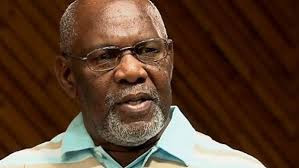
By Charles Laiton
THE muddled fight between MDC leader Nelson Chamisa and his arch-rival MDC-T president Thokozani Khupe was yesterday put on ice after the Supreme Court reserved judgment in a case where the two are battling for control of the main opposition MDC.
The decision by Justices Paddington Garwe, Antoinette Guvava and Bharat Patel has effectively left the two protagonists hung out to dry, meaning that the matter may never be resolved any time soon.
During the Supreme Court hearing, Khupe had urged the judges’ bench to recognise the opposition’s party structures that existed in 2014 when the opposition party was being led by the late founder Morgan Richard Tsvangirai.
Khupe made the remarks through her lawyer Lovemore Madhuku while responding to an appeal by Chamisa, who is challenging the decision by the High Court which stripped him of the MDC-T presidency.
In her submission, Khupe said High Court judge Justice Edith Mushore did not misdirect herself when she ruled that the MDC constitution does not provide for the appointment of more than one deputy president as was done by Tsvangirai when he appointed Chamisa and Elias Mudzuri in 2016.
“The High Court was correct to find that the MDC constitution does not provide for the appointment of more than one deputy president … There was no provision for more than one deputy president, hence in 2014, there was only one deputy president, being the third respondent (Thokozani Khupe),” Madhuku said.
He said when Chamisa was appointed acting president during a meeting held in February 2018, it was in violation of the party’s constitution because Khupe was available to act as president during the time Tsvangirai was receiving treatment in South Africa.
- Chamisa under fire over US$120K donation
- Mavhunga puts DeMbare into Chibuku quarterfinals
- Pension funds bet on Cabora Bassa oilfields
- Councils defy govt fire tender directive
Keep Reading
Khupe further urged the court to rule in her favour and allow for the holding of the congress, which is supposed to be held in accordance with the party’s constitution.
In his submission, Chamisa, represented by advocate Thabani Mpofu, accused Khupe of acting scandalously by seeking a positive relief in a matter in which she did not participate at the High Court.
Chamisa insisted that the MDC’s constitution provided for the appointment of more than one deputy president and that Justice Mushore’s determination was misdirected, adding that Khupe had since moved on by leading her own party which also held its national congress and, above all, she participated in the July 2018 general elections as MDC-T presidential candidate.
“It’s scandalous that she did not respond to issues raised in the High Court and yet she is now seeking a positive relief from the Supreme Court,” Mpofu said, adding that the judgment of the High Court had been overtaken by events since his client was elected substantive president of the MDC during a congress that was held by the party in May 2019.
Mpofu said Khupe also violated the constitution of the MDC-T by not inviting MDC’s Gokwe Sesame District secretary Elias Mashavira to her congress, him being the one who raised the issue of not having been invited to the national congress that ushered Chamisa into the office of the acting president.
He urged the Supreme Court to remit the matter to the High Court for determination, arguing that the MDC party was barred from the proceedings which led to Mashavira scoring a victory against his party.
Mpofu defended Tsvangirai’s appointment of Chamisa, saying the late founding party leader had the powers to do that considering that he was the leader of the national council, which in itself was “a congress outside congress”.
“The national council has the power to authorise the president to make appointments of deputies regardless of the absence of the enabling provisions…,” he said.
Mashavira’s lawyer Ashell Mutungura also submitted that the High Court did not err when it made a decision that Chamisa was unconstitutionally appointed.







